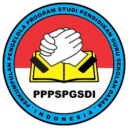Pengembangan E-Modul Topik Penjernihan Air Berbasis Education for Sustainable Development (ESD) di Sekolah Dasar
DOI:
https://doi.org/10.35568/naturalistic.v7i2.3114Keywords:
E-Module, Penjernihan Air, Pengembangan, ValidasiAbstract
This project seeks to create an e-module product for class v of elementary school on the subject of ESD-based water purification. DBR (Design Based Research), which takes the shape of a research design focusing on development, is the methodology employed in this study. A class V teacher interview was undertaken to determine the availability of modules in elementary schools prior to the development. The next step was to design a VFT (virtual field trip) product that featured an e-module after FGDs were conducted to examine the issues in the school. In order to design module products with the subject of ESD-based water purification, it is necessary to first analyze basic competencies (KD), identify indicators of achievement of competencies and learning objectives, gather necessary supplementary materials, examine the applications used to process and produce e-module media programs, and create a product prototype draft module. The KD that was examined included KD 3.8 and KD 4.8 for science, KD 3.4 and KD 4.4 for mathematics, and KD 3.2 and KD 4.2 for Indonesian. Canva is the program used to design modules. An internet tool called Canva can be used to make educational media. Validation comes next when the module has been finished being drafted by using the Canva program. Three expert teams carried out the validation. There are a number of things that need to be added and modified based on the findings of the validation.
Downloads
References
Badan Standar Nasional Pendidikan
(BSNP). (2010). Paradigma
Pendidikan Abad XXI. Jakarta:
Depdiknas
Budiman, A, dkk. (2008). Kinerja Koagulan
Poly Aluminium Chloride (PAC)
dalam Penjernihan Air Sungai Kalimas Surabaya Menjadi Air
Bersih. Jurnal Ilmiah Widya
Teknik. 7(1), 25-34
Dewan Riset Nasional (DRN). (2003).
Tantangan dan Peluang
Lingkungan dalam Pembangunan
yang Berkelanjutan. Jakarta: DRN
Junaedi, I. (2019). Proses Pembelajaran
yang Efektif. Journal of
Information System, Applied,
Management, Accounting and
Research. 3(2), 19-25
Kementerian Pendidikan dan Kebudayaan
(Kemendikbud). (2016). Education
for Sustainable Development.
Diakses dari
Kodoatie, RJ. 2007. Pengelolaan Sumber
Daya Air Dalam Otonomi Daerah.
Yogyakarta: Andi Offset
Kosasih, E. (2021). Pengembangan Bahan
Ajar. Jakarta: Bumi Aksara
Kuncahyono. (2018). Pengembangan EModul (Modul Digital) dalam
Pembelajaran Tematik di Sekolah
Dasar. JMIE. Journal of Madrasah
Ibtidaiyah Education. 2(2), 219-231
Listyawati, M. (2012). Pengembangan
Perangkat Pembelajaran Ipa
Terpadu Di Smp. Journal of
Innovative Science Education, 1(1),
-69
Puspitasari, A.D.(2019). Penerapan Media
Pembelajaran Fisika
Menggunakan Modul Cetak dan
Elektronik Pada Siswa SMA. Jurnal
Pendidikan Fisika
Rachmadanti, A., & Gunansyah, G. (2020).
Analisis Buku Teks Tematik
Berorientasi Muatan Sustainable
Development Di Sekolah Dasar.
Jurnal Penelitian Pendidikan Guru
Sekolah Dasar. 8(2), 326–340
Rahman, A., Heryanti, L. M., & Ekanara, B.
(2019). Pengembangan Modul
Berbasis Education for Sustainable
Development pada Konsep
Ekologi untuk Siswa Kelas X SMA.
Jurnal Eksakta Pendidikan (JEP),
(1), 1-8
Sadjati, I.M. (2012). Hakikat Bahan Ajar.
Diakses dari
http://repository.ut.ac.id/4157/1/I
DIK40 09-M1.pdf
Suripin. 2004. Pelestarian Sumber Daya
Tanah dan Air. Yogyakarta: Andi
Offset
Triono, M.O. (2018). Akses Air Bersih pada
Masyarakat Kota Surabaya serta
Dampak Buruknya Akses Air
Bersih Terhadap Produktivitas
Masyarakat Kota Surabaya. Jurnal
Ilmu Ekonomi Terapan. 3(2), 93-
Isman, A. (2011). Instructional Design in
Education: New Model. TOJET:
The Turkish Online Journal of
Educational Technology, 10(1),
-142
Mauliandri, R., Maimunah., & Roza Y.
(2021). Kesesuaian Alat Evaluasi
dengan Indikator Pencapaian
Kompetensi dan Kompetensi
Dasar pada RPP Matematika.
Jurnal Cendikia: Jurnal
Pendidikan Matematika, 5(1), 803-
Downloads
Published
How to Cite
Issue
Section
License
Copyright (c) 2023 Naturalistic: Jurnal Kajian dan Penelitian Pendidikan dan Pembelajaran

This work is licensed under a Creative Commons Attribution-NonCommercial-NoDerivatives 4.0 International License.
Copyright of Journal Naturalistic : Jurnal Kajian Penelitian Pendidikan dan Pembelajaran (e-ISSN:2548-8589, p-ISSN:2528-2921).
Open Access Policy
This journal provides immediate open access to its content on the principle that making research freely available to the public supports a greater global exchange of knowledge.
This journal is open access journal which means that all content is freely available without charge to users or / institution. Users are allowed to read, download, copy, distribute, print, search, or link to full text articles in this journal without asking prior permission from the publisher or author. This is in accordance with Budapest Open Access Initiative.






